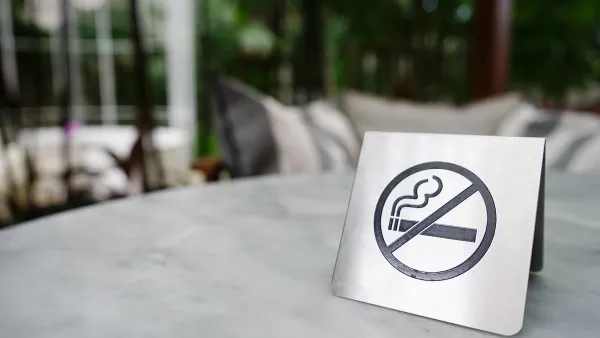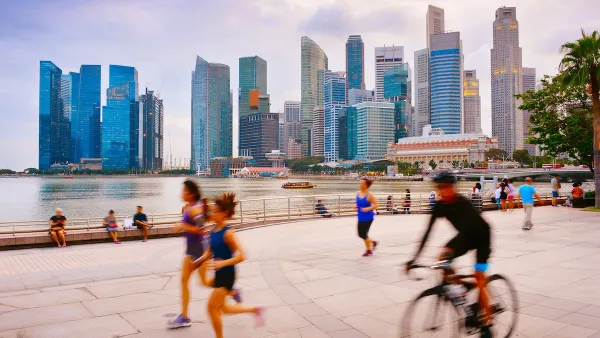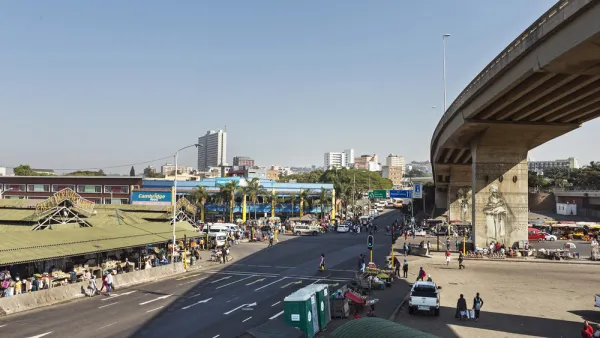Smoking is physically harmful to smokers and non-smokers alike, but what about its impact on public space? Nate Berg reports on a new paper in Urban Studies based on interviews in Singapore -- where smoking has been regulated since 1970.
The report by Qian Hui Tan of the Department of Geography, National University of Singapore, goes beyond studying issues related to the segregation of public spaces between smoking and non-smoking areas, though that is where she conducted many of the interviews that compose the study, to look at the impact of the odor on individuals themselves.
Berg writes, "The influence of smell, Tan argues, is perhaps one of the strongest determinants of how people interact with or avoid one another in the public sphere – whether it's cigarette smoke, days without a shower or the undeniable stench of vagrancy. How exactly cigarette smells shape the use of public space is likely different from place to place. But this research argues that smell and personal habits can be a major force in shaping city life."
As density becomes more accepted in residential living, and the shared spaces of the city become more crowded, are additional regulations needed to separate smokers from non-smokers? While Tan's research doesn't appear to delve in that direction, it is being considered more often, as shown by the Marin County, CA city of San Rafael's proposal "to ban smoking in more than 40 percent of the city's private residences or while sitting or standing on any sidewalk downtown."
Jennifer Gollan, writing for The Bay Citizen notes that "(t)he proposed ordinance would prohibit smoking tobacco or marijuana in any multi-family residential unit, condominium or apartment – more than 10,000 of the city's 24,000 dwellings....Violators could face fines ranging from $100 to $500, depending on the number of times they have been cited."
Thanks to The Atlantic Cities newsletters
FULL STORY: Even the Smell of Cigarettes Changes How We Use Public Spaces

Analysis: Cybertruck Fatality Rate Far Exceeds That of Ford Pinto
The Tesla Cybertruck was recalled seven times last year.

National Parks Layoffs Will Cause Communities to Lose Billions
Thousands of essential park workers were laid off this week, just before the busy spring break season.

Retro-silient?: America’s First “Eco-burb,” The Woodlands Turns 50
A master-planned community north of Houston offers lessons on green infrastructure and resilient design, but falls short of its founder’s lofty affordability and walkability goals.

Test News Post 1
This is a summary

Analysis: Cybertruck Fatality Rate Far Exceeds That of Ford Pinto
The Tesla Cybertruck was recalled seven times last year.

Test News Headline 46
Test for the image on the front page.
Urban Design for Planners 1: Software Tools
This six-course series explores essential urban design concepts using open source software and equips planners with the tools they need to participate fully in the urban design process.
Planning for Universal Design
Learn the tools for implementing Universal Design in planning regulations.
EMC Planning Group, Inc.
Planetizen
Planetizen
Mpact (formerly Rail~Volution)
Great Falls Development Authority, Inc.
HUDs Office of Policy Development and Research
NYU Wagner Graduate School of Public Service




























